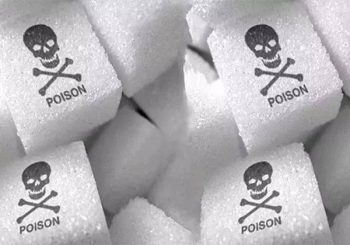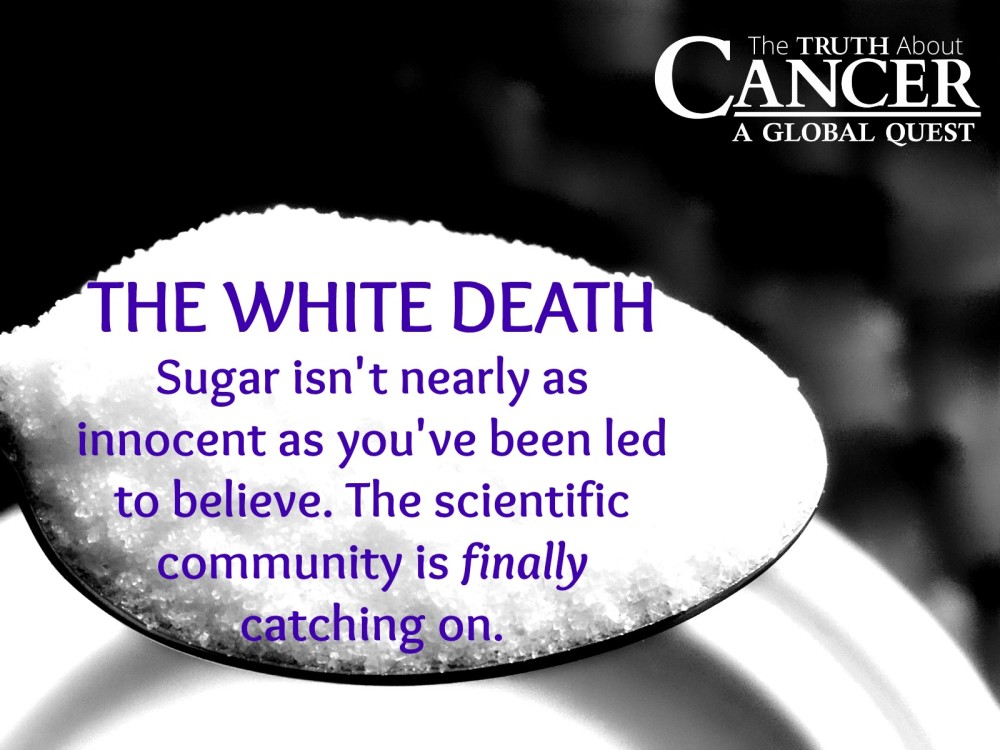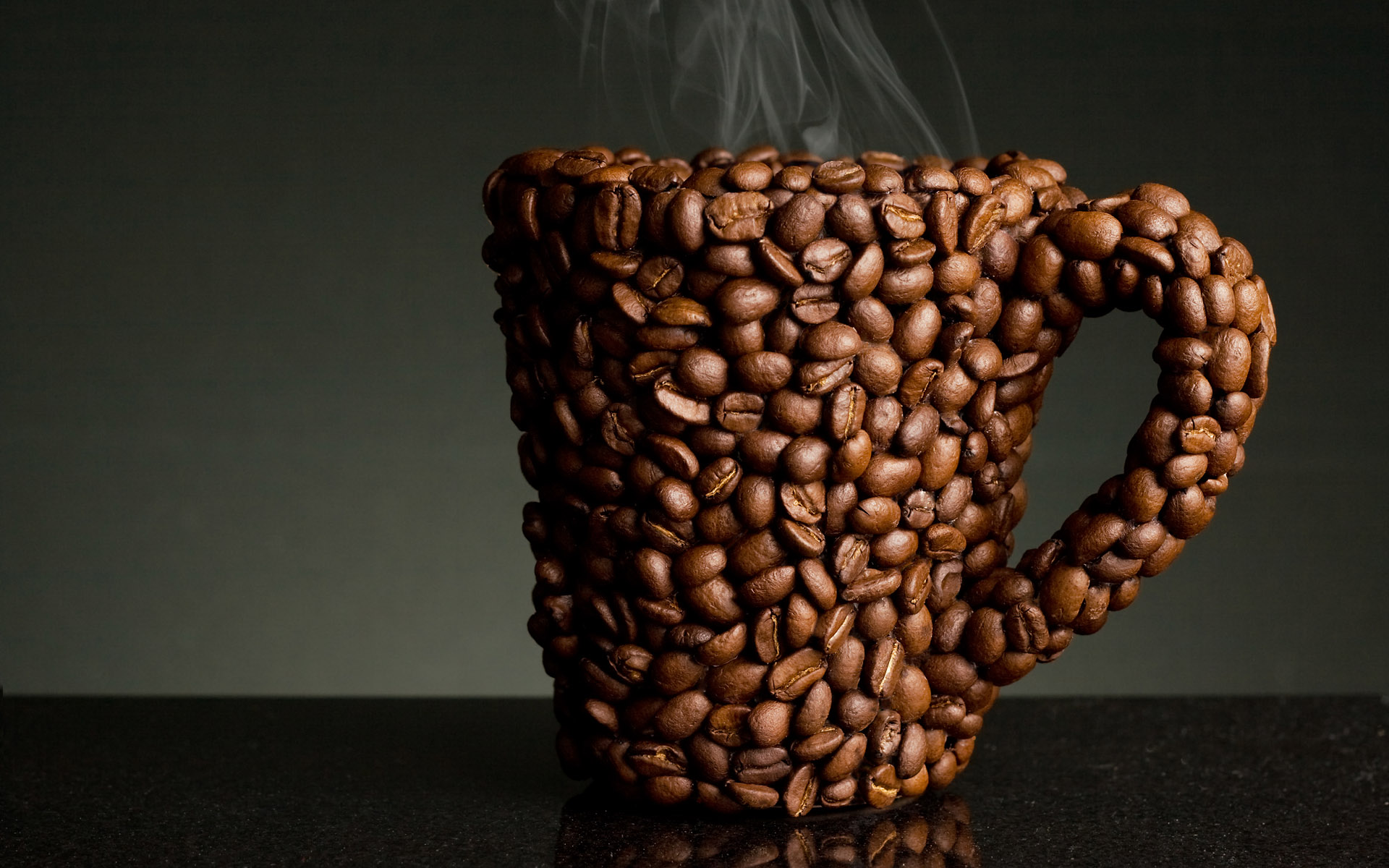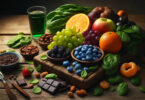By Ty Bollinger
Guest Writer for Wake Up World
As good as it may taste, sugar is NOT your friend. It may “feel” like your friend when it comforts you (due to the beta-endorphin rush in your brain), but sugar is really your ENEMY.
Truth be told, regular consumption of sugary foods is one of the worst things that you can do for your health. Modern scientific research has shown us, beyond a shadow of a doubt, that sugar in your food (in all its myriad forms) is taking a devastating toll on your health. We’ll explore cancer and sugar further down, but let’s first take a look at the sugar consumption trends over the past 300 years:
[pro_ad_display_adzone id=”110028″]
- In 1700, the average person consumed about 4 pounds of sugar per year.
- In 1800, the average person consumed about 18 pounds of sugar per year.
- In 1900, individual consumption had risen to 90 pounds of sugar per year.
- In 2012, more than 50% of all Americans consumed 1/2 pound of sugar per day — translating to a whopping 180 pounds of sugar per year!
In 1890, only 3 people out of 100,000 had diabetes. In 2012, almost 8,000 out of every 100,000 people was diagnosed with diabetes (and this number is rising all the time)!
Creating Our Addiction to Sugar
The “sugar rush” has been targeted at our children. American children are consuming about 10 times as much sugar as they were in 1900, especially in the form of high fructose corn syrup (HFCS), which is the average American’s greatest source of calories! Highly addictive HFCS contains fructose and glucose, but they are NOT bound together (as they are in table sugar) so the body doesn’t need to break it down. Therefore, the fructose is absorbed immediately, going straight to the liver, which turns it into fat (VLDL and triglycerides).
According to Dr. Joseph Mercola:
“Fructose also tricks the body into gaining weight by fooling your metabolism (it turns off the appetite-control system). Fructose does not appropriately stimulate insulin, which in turn does not suppress ghrelin (the “hunger hormone”) and doesn’t stimulate leptin (the “satiety hormone”), which together result in your eating more and developing insulin resistance.” This process also suppresses the immune system.
But just because you avoid HFCS doesn’t mean that you’re in the clear. Excess intake of ALL processed sugars results in compromised immune function (decreasing the white blood cells’ ability to destroy bacteria), obesity, and diabetes.
And if that’s not enough, keep in mind that sugar is HIGHLY addictive! That’s right! Dr. Serge Ahmed of Bordeaux, France, has been working with rats and giving them the choice between cocaine and sugar. Guess which one wins, time and again?
That’s right… sugar!
It turns out that the sweet taste of sugar is more rewarding than the high of cocaine.
You see, sugar produces dopamine – a happy, feel-good chemical – in the brain. People get addicted to eating sugar, whereby they need it to feel “normal” and they undergo “withdrawal” if they cut sugar from their diets. If they go “cold turkey” for a few days, their brain will begin to produce dopamine on its own, but the discomfort of the withdrawal process keeps many “sugar addicts” trapped in their addiction.
Does Sugar Feed Cancer? Exploring the Sugar and Cancer Connection
Due to the anaerobic respiratory mechanism exhibited by ALL cancer cells, sugar is cancer’s favorite food! What this means is that cancer feeds on sugar. And since half of the white sugar in the USA comes from sugar beets, you should remember that most beets are now genetically modified with all the associated risks of GMOs. This is another reason to keep the “White Death” out of your diet and reduce your risk of various cancers, isn’t it?
Whether you are currently healing from a type of cancer such as breast cancer or prostate cancer, or are simply trying to maintain good dietary principles, I personally recommend that you avoid white sugar, brown sugar, agave, and all artificial sweeteners such as aspartame/AminoSweet, sucralose, and saccharin. If you have a sweet tooth, it’s best to stick with 100% organic green stevia, xylitol, raw honey, pure maple syrup, molasses, and coconut sugar.
The bottom line… if you want to be and stay healthy, you MUST take control of your sugar intake so that it doesn’t take control over you and your health!
Ending the Sugar Confusion
It’s easy to become confused by the various sugars and sweeteners, so here is a basic overview:
- Saccharide = sugar
- Glucose (aka “dextrose” or “grape sugar”), galactose (“milk sugar”), and fructose (“fruit sugar”) are all “monosaccharides” (i.e. single sugar molecules), known as “simple sugars.” The primary difference between them is the way your body metabolizes them.
- Glucose is a form of energy you were designed to run on. Every cell in your body uses glucose for energy.
- High amounts of fructose are very damaging to the body if it isn’t burned immediately for energy because it travels directly to the liver where it’s converted to triglycerides (fats). Excess triglycerides increase insulin resistance (and insulin production), thus contributing to diabetes in a “back door” fashion.
- The simple sugars can combine to form more complex sugars, like sucrose (“table sugar”) which is a “disaccharide” comprised of 50% glucose and 50% fructose.
- “Refined” white sugar (pure sucrose) is washed with a syrup solution, then with hot water, clarified (usually chemically) to remove impurities, decolorized, concentrated, evaporated, re-boiled until crystals form, centrifuged again to separate, then dried. By this point, any remnants of “natural goodness” and “nutritional value” have completely disappeared! Quite frankly, white sugar should be considered an “industrial product” rather than “food.”
- “Brown sugar” is white sugar mixed with molasses.
- “Raw” sugar is not really raw. It has been cooked, and most of the minerals and vitamins are gone. But it’s probably a little better than refined white sugar because it has a little of the molasses remaining.
- Aspartame or AminoSweet is a neurotoxic rat poison… need I say more?
- Splenda (sucralose) is NOT a sugar, despite its deceptive marketing slogan, “made from sugar.” It’s a chlorinated artificial sweetener in line with aspartame.
- Honey is approximately 50% fructose, but in natural (raw and unpasteurized) form contains many health benefits. Buying honey that is local and unpasteurized is best.
- Stevia is an extremely sweet herb derived from the leaf of the South American stevia plant, which is completely safe (in its natural form). Green stevia is the whole plant, while white stevia is processed and can often contain other ingredients like natural flavors or dextrose ? a form of sugar. 100% organic green stevia in its natural state is what you want.
- Agave nectar is made from the agave plant, which is a cactus. Sounds natural, right? Like maple syrup from a tree, or honey from a beehive. Only it isn’t. Agave is HIGHLY processed while the end product does not even remotely resemble the original agave plant. Furthermore, agave is approximately 80% fructose (much higher than honey and maple syrup).
- HFCS (high fructose corn syrup) is 55% fructose and 45% glucose. It is mostly genetically modified. Stay away!
- Rapadura is the pure juice extracted from the sugar cane (using a press), which is then evaporated over low heat, whilst being stirred with paddles, then sieve ground to produce a grainy sugar. It has not been cooked at high heats or spun to change it into crystals, and the molasses is maintained in the sugar. “Sucanat” is the USA trade name for Rapadura.
- Coconut sugar is made from the sweet watery sap that drips from the cut flower buds of the coconut palm. It has a low glycemic index (GI) and is rich in amino acids. It is typically less than 10% fructose, with sucrose being the primary component.
- Xylitol is a sweetener known as a “sugar alcohol” (or polyol). Sugar alcohols are neither sugars nor alcohols ? they are carbohydrates (with structures that happen to resemble sugar and alcohol). Xylitol is extracted from corn or birch cellulose. Unlike sugar, Xylitol is slowly absorbed, does not cause a rapid blood sugar increase, and does not require an immediate insulin response from the body to be metabolized. Moreover, many studies have shown that it actually helps prevent dental cavities, ear infections, and some evidence suggests that it helps prevent gum disease because Xylitol is anti-bacterial. However, Xylitol does have some potential health side effects (most notably gastrointestinal issues) and should be used with caution.

[Editors’ note: This article was initially published in April 2015 and was updated in July 2021.]
Sources and References:
- Consumption of Added Sugars Among U.S. Adults, 2005–2010
- USDA Announces Partial Deregulation for Roundup Ready Sugar Beets
- Specific sugar molecule causes growth of cancer cells
- Is Sugar Toxic?
- Excess sugar linked to cancer
Originally published at The Truth About Cancer and reproduced here with permission.
About the author:
 Ty Bollinger is a health freedom advocate, cancer researcher, former competitive bodybuilder and author. After losing several family members to cancer, he refused to accept the notion that chemotherapy, radiation, and surgery were the most effective treatments available for cancer patients. He began a quest to learn all he possibly could about alternative cancer treatments and the medical industry. What he uncovered was shocking. There is ample evidence to support the allegation that the “war on cancer” is largely a fraud and that multinational pharmaceutical companies are “running the show.” Ty has now made it his life mission to share the most remarkable discovery he made on his quest: the vast majority of all diseases, including cancer, can be easily prevented and even cured without drugs or surgery.
Ty Bollinger is a health freedom advocate, cancer researcher, former competitive bodybuilder and author. After losing several family members to cancer, he refused to accept the notion that chemotherapy, radiation, and surgery were the most effective treatments available for cancer patients. He began a quest to learn all he possibly could about alternative cancer treatments and the medical industry. What he uncovered was shocking. There is ample evidence to support the allegation that the “war on cancer” is largely a fraud and that multinational pharmaceutical companies are “running the show.” Ty has now made it his life mission to share the most remarkable discovery he made on his quest: the vast majority of all diseases, including cancer, can be easily prevented and even cured without drugs or surgery.
For more information, visit:
[pro_ad_display_adzone id=”110027″]








